detail profile mamata shankar
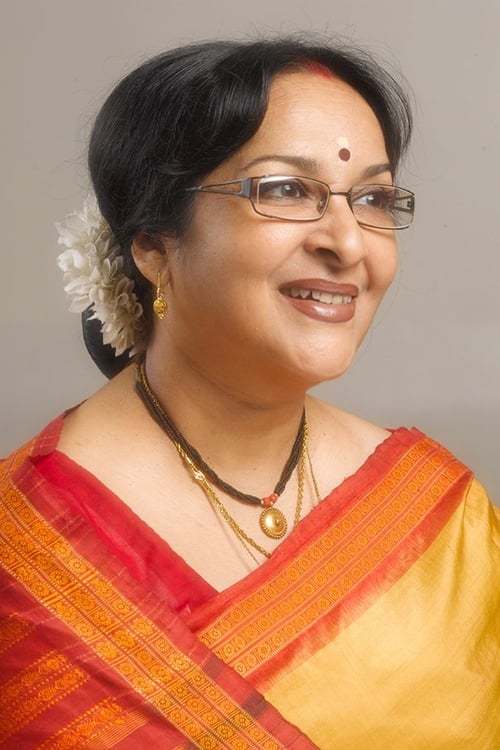
Riwayat Hidup
Mamata Shankar (born 7 January 1955) is an Indian actress and dancer.
She is known for her work in Bengali cinema.
She has acted in films by directors including Satyajit Ray, Mrinal Sen, Rituparno Ghosh, Buddhadeb Dasgupta and Gautam Ghosh.
In addition to being an actress, she is a dancer and choreographer.
Info Pribadi
Peran Yang Di Mainkan Mamata Shankar
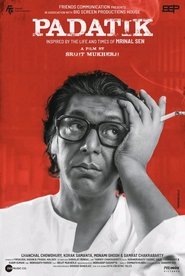 The film follows Mrinal Sen in...
The film follows Mrinal Sen in...Padatik 2024
The film follows Mrinal Sen in his early days around the time of India’s independence, where he is a struggling idealist with an all-consuming hunger for cinema but unable to feed himself or his young wife, to 1950s Calcutta, where (alongside Satyajit Ray) he helped start the Indian New Wave cinema movement.
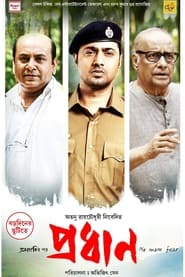 Deepak Pradhan a young police officer...
Deepak Pradhan a young police officer...Pradhan 2023
Deepak Pradhan, a young police officer, gets transferred to North Bengal where his junior officers are involved in corrupt practices. When disturbing events from the past start to surface and the pressure builds, will Deepak be able to hold on to his principles to save his integrity and loved ones?
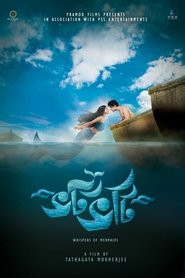 After losing his parents at a...
After losing his parents at a...Bhotbhoti 2022
After losing his parents at a very tender age, Bhotbhoti was raised in a ghetto close to the Ganges by his 'daadi' (grandmother) who too has passed away. Daadi was a great story-teller and Bhotbhotis favourite story was the one about mermaids and their world that exists, or rather flourishes underwater. Bhotbhoti's belief was further strenthened when he found out, not in the distant past, a story (movie) on mermaids that floats on the televison screen, called The Mermaid Princess. His most prized possession, the dvd of the film stays in his little trunk under his chowki (bed) until he takes it out every night and puts it into his battered but not run-down collected and repaired dvd player which brings to him his Ariel (the name of the mermaid in the film). The Ganges calls out to him and while his friends (group members) are sloshed, he dives into the waters to look for his mermaid queen, but she is ever-elusive.
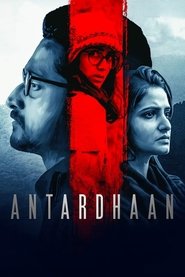 Anirban is a professor who lives...
Anirban is a professor who lives...Antardhaan 2021
Anirban is a professor who lives in Delhi with his wife Tanu and daughter Zinia. He is transferred to a lonely town named Kasauli. They enjoy a lot in the new city but their neighbors are mysterious. One day, their daughter Zinia goes missing during an excursion. Anirban and Tanu enquire and come to know that Zinia's friends didn't even accompany her.
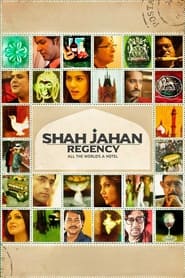 The story revolves around a hotel...
The story revolves around a hotel...Shah Jahan Regency 2019
The story revolves around a hotel named "Shah Jahan Regency" and lives of people associated with that hotel. The hotel is one of a kind and very different from others as it strongly believes in the rich culture of India and tries to imply and maintain that in every aspect of the hotel - starting from the decor, to uniforms of the staff members, to the names given to various parts of the hotel.
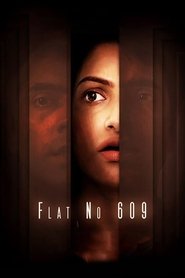 A couple moves into a beautiful...
A couple moves into a beautiful...Flat No 609 2018
A couple moves into a beautiful duplex and starts experiencing paranormal activities.
 A heartwarming collage of interconnected love...
A heartwarming collage of interconnected love...Ahare Mon 2018
A heartwarming collage of inter-connected love stories, Ahare Mon is a romantic drama that revolves around people who are otherwise forbidden to fall in love.
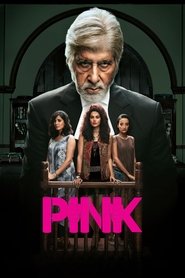 A sexual assault victim unjustly tried...
A sexual assault victim unjustly tried...Pink 2016
A sexual assault victim, unjustly tried for the attempted murder of her attacker, is defended by a retired lawyer who challenges India's rape culture.
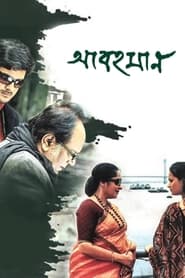 Abohomaan tells the story of Aniket...
Abohomaan tells the story of Aniket...Abohomaan 2009
Abohomaan tells the story of Aniket, one of the finest filmmakers of Bengal in eastern India and the loves of his life. Devoted to his craft, Aniket met and fell in love with his wife Deepti, an actress, while they worked together on the set of a film. They were so in love that Deepti sacrificed her own career for her husband's and for their son Apratim, but lost a little of who she was in the process. The plot thickens when Aniket auditions a young actress, Shikha, who bares an uncanny resemblance to his wife when she was younger. Deepti enthusiastically begins to coach Shikha for her husband's film - so much so that Shikha becomes even more like the girl Deepti used to be and as a result the aging Aniket falls in love with Shikha, a woman as young as his son, despite the sadness and trouble it brings to his family.
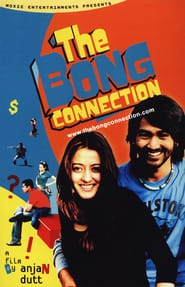 The film is based on the...
The film is based on the...The Bong Connection 2006
The film is based on the lives of Bengali's across the world, especially on those settled abroad. It attempts to delineate the pain and dilemma of Bengali's estranged from their places of origin. It seeks to explore sensitive souls singing to the tunes of Tagore.
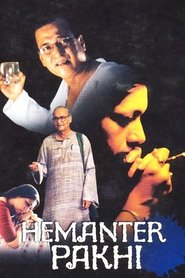 This is a story of a...
This is a story of a...Hemanter Pakhi 2001
This is a story of a Bengali housewife who takes up writing as a career after twenty three years of her marriage. She is introduced to a new world and new friends. Her work gets appreciated and this brings a new twist in her life. She starts discovering her husband and her beloved children in new light. This creates trouble in her family and she sacrifices her dream for the sake of her family.
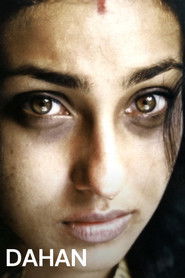 On her way home the newlywed...
On her way home the newlywed...Dahan 1998
On her way home the newlywed Romita is molested by five men. The only one who has the courage to help is the young female teacher Jhinuk. Because of that she becomes a heroine and is on all papers' front page. But the page is turning: As not only the police but also Neighbours begin to ask embarrassing questions the two women are eventually intimidated and the five men are getting free with the help of corruption and male domination.
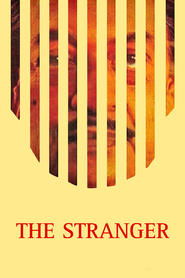 A welloff Indian family is paid...
A welloff Indian family is paid...The Stranger 1991
A well-off Indian family is paid an unexpected, and rather unwanted, visit by a man claiming to be the woman's long lost uncle. The initial suspicion with which they greet the man slowly dissolves as he regales them with stories of his travels, tales that are at odds with their conventional middle class perspective on the world.
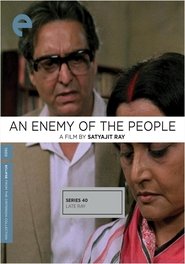 Ashoke Gupta is an idealistic doctor...
Ashoke Gupta is an idealistic doctor...An Enemy of the People 1990
Ashoke Gupta is an idealistic doctor working in a town near Calcutta. He discovers that the water at a popular temple is the source of an outbreak of typhoid and hepatitis. In order to save lives, he risks his career to try and call attention to this polluted water source, while a local group of building contractors attempt to discredit him in various ways.
 A British administrator with a flair...
A British administrator with a flair...Mrigayaa 1976
A British administrator with a flair for game hunting develops a friendship with a commoner who is an expert archer in an Indian village. The movie portrays the relationship between the British colonialists, and native villagers who were exploited by Indian landlords in 1920s India. This happens against the backdrop of the awakening of the Indian people against the British rule.
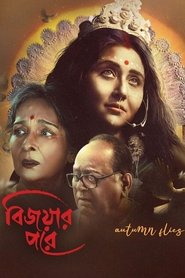 Amid the celebratory atmosphere of Durga...
Amid the celebratory atmosphere of Durga...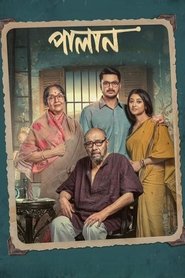 Kaushik Ganguly will bring the story...
Kaushik Ganguly will bring the story...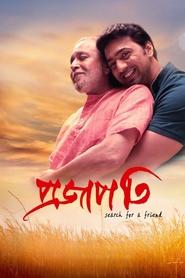 A retired 65year widower Gaur Chakraborty...
A retired 65year widower Gaur Chakraborty...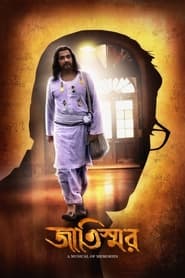 Rohit a Gujarati studies the life...
Rohit a Gujarati studies the life...